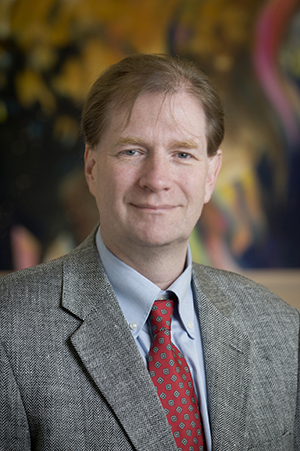 Principal Investigator and Helen P. Rumbel Professor of Micronutrient Research, Linus Pauling Institute
Principal Investigator and Helen P. Rumbel Professor of Micronutrient Research, Linus Pauling Institute
Professor, Department of Biochemistry and Biophysics
Contact Information:
457 Linus Pauling Science Center
541-737-8018 / 541-737-5077 (fax)
[email protected]
Our research is focused on understanding how vitamin D regulates immunity.
When immune cells called macrophages encounter a pathogen and become activated, the vitamin D pathway is turned on and lead to the induction of the cathelicidin antimicrobial peptide if vitamin D levels are sufficient - but only in humans and primates. Therefore, we developed a transgenic mouse that carries the human cathelicidin gene to determine how well vitamin D protects against infection.
Another focus of our research is to identify additional dietary compounds that regulate the expression of the cathelicidin gene, which could protect the gut from infection. The identification of new regulatory compounds may give clues as to how the gene is regulated in vivo and lead to the identification of other nutrients that can be used to boost the immune system.
Conformational modulation of the farnesoid X receptor by prenylflavonoids: Insights from hydrogen deuterium exchange mass spectrometry (HDX-MS), fluorescence titration and molecular docking studies.(2016) Biochim Biophys Acta 1864:1667-1677.
Associations between vitamin D levels and depressive symptoms in healthy young adult women. (2015) Psychiatry Res, Epub ahead of print.
The end of the line for neutrophils. (2015) Blood 125:1688-1690.
C/EBPα and the vitamin D receptor cooperate in the regulation of cathelicidin in lung epithelial cells. (2014) J Cell Physiol, Epub ahead of print.
The antibiotic effects of vitamin D. (2014) Endocr Metab Immune Disord Drug Targets 14:255-266.
Regulation of the human cathelicidin antimicrobial peptide gene by 1a,25-dihydroxyvitamin D3 in primary immune cells. (2014) J Steroid Biochem Mol Biol 143:183-91.
Full Publication List (via PubMed)